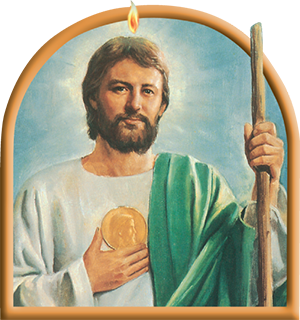Stop talking 'bout my generation
Young Catholics may not win at Catholic Jeopardy, but they've gotten the gist of Jesus' message.

I've got a message for all those CCD teachers from the 1960s and '70s, those men and women who taught religious education before it was called religious education. You know who you are: You fed us all that "God is love" stuff and had us make banners with smiley faces instead of memorizing the Baltimore Catechism. There's something I've been wanting to tell you for a long time: Thank you.
I think you did a decent—in many cases exemplary—job of teaching my generation about the faith. I know this is an unpopular view, one that goes against the commonly accepted wisdom that young people in their 20s and 30s are the most poorly catechized Catholics in recent history, or perhaps ever. Noted Catholic historian Scott Appleby of the University of Notre Dame has gone so far as to say that "no previous generation of American Catholics inherited so little of the content and sensibility of the faith from their parents as have today's Catholic youth."
Ouch. No previous generation? Does that include the illiterate immigrants of the 1800s?
It is true that many young Catholics are rather ignorant about a lot of the details of institutional Catholicism. Everyone's got a story about some young whippersnapper who didn't know something basic—like that Mother Teresa wasn't Jesus' mother, as one college student answered on a quiz given by my brother-in-law. I've had friends ask me, "What's Pentecost again?" and Lord knows even I sometimes get Popes Pius XI and Pius XII mixed up.
But give us a break. I once heard a speaker rail against Gen X Catholics for knowing next-to-nothing about the Second Vatican Council. I protested: "C'mon. They weren't even born yet! How much does the average Baby Boomer know about Vatican I? Or the Council of Trent?" The speaker insisted that wasn't the same.
The truth is that not a few older Catholics could stand to brush up on their religious knowledge, too. We once interviewed a seventy-something biblical scholar who admitted his sister had finally asked him, "What's this Exodus thing you keep talking about?" It could be argued that Catholics of all ages are not exactly overeducated about their faith--not to mention other things. Quick: Name the five rights guaranteed by the First Amendment. At a recent conference, only one in a crowd of 100 could do so. And they were not exactly young!
I won't deny that if you pitted a Baby Boomer Catholic against a Gen X-er in a game of Catholic Jeopardy ("I'll take sacraments for $200, Alex"), chances are the Boomer would win. After being forced to memorize their way to Confirmation, they can rattle off the Seven Deadly Sins as easily as the lyrics to "Let It Be." But memorization is not the same as internalization. Being able to list the gifts of the Holy Spirit is not the same as being filled with the Holy Spirit and letting that Spirit infuse your life.
Even Jesus downplayed the ticky-tack rules and boiled it down to "Love God; love your neighbor." And here's where I think our generation is doing pretty well—or at least as well as previous generations. They may not know it all, but I do think a good number of Gen X Catholics have gotten the gist of this whole Christianity thing.
For example, a great number of young Catholics commit to unpaid service work after college. According to a 1997 survey of Catholics ages 20 to 39, when asked which elements of Catholicism were most essential, the top answers were the sacraments, special attention to helping the poor, and devotion to Mary. Not exactly ignorant answers.
Continuing religious ed is a must for all adult catho-lics, but singling out this generation for their need of it is not only unfair, it turns them off from the very church they need to know more about. I witnessed a young college student who had made social justice work her career break into tears after listening to a crowd berate young Catholics for ignorance about their faith. She was trying to live what she thought was the most important part of Jesus' message but was feeling attacked for not knowing one Vatican II document from another.
So here's a modest proposal: Let's drop this automatic assumption that young Catholics are uneducated about their faith—or at least the idea that they're the only ones. Then maybe we can focus on improving the literacy of all Catholics—on the details as well as the bigger picture.
Heidi Schlumpf is the managing editor of U.S. Catholic magazine. This article appeared in the February 2004 (Volume 69; Number 2: Page 50) issue of U.S. Catholic.
